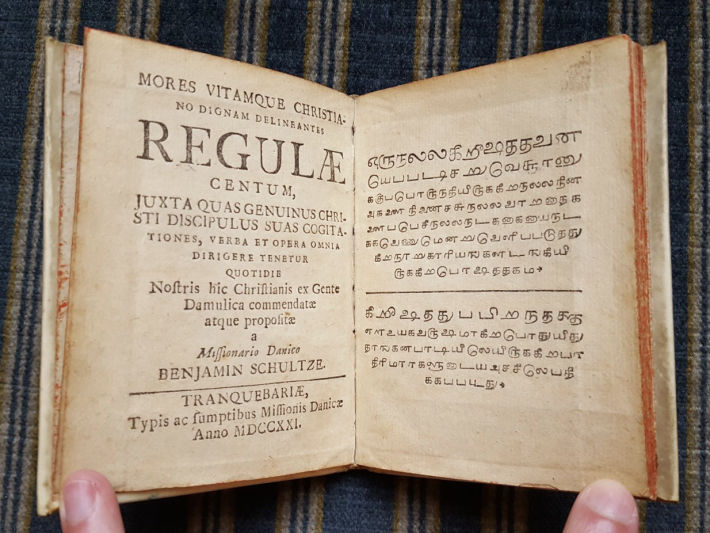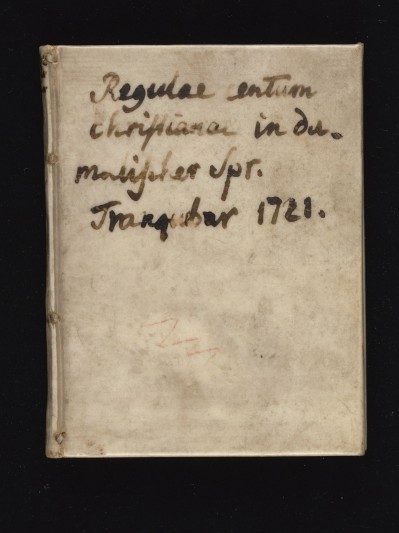Will Hale, Rare Books Specialist, writes: Cambridge University Library is very grateful to the Friends of the National Libraries for contributing half the purchase price of a scarce tract printed at the Danish Mission in Tranquebar (Tharangambadi) in 1721, an early example of printing in the Tamil language.
The earliest Western printing press in India was established by Jesuits in Goa in 1556, but few of its products survive. The Protestant Mission in the Danish colony of Tranquebar had been established by Lutheran clergy from Halle in 1706, led by Bartholomäus Ziegenbalg (1683–1719). In 1712 the Mission was equipped with a press, supplied by the Society for Promoting Christian Knowledge in London. The first printing in Tamil from this press followed a year later, using types cast in Halle. With this equipment the mission set about printing the New Testament in Tamil, in Zeigenbalg’s translation, but the Halle type was found too large for this undertaking and a new, smaller fount was cast, using the lead covers of Cheshire cheeses sent over by the SPCK. It is probably this type which is used in the present work.
The text is Mores vitamque Christiano dignam delineantes regulae centum, a collection of Christian rules for living translated into Tamil. The author is Benjamin Schultze (1689–1760), a native of Halle, who had arrived in Tranquebar in 1719 and was to complete Ziegenbalg’s translation of the Old Testament after the latter’s early death. Schultze became an authority on Indian languages and would publish a version of the same work in Telugu in 1747, after his return to Halle.
No other copy of this text is recorded in the UK, and only three worldwide, of which two are in Halle and one in Geneva. The book survives in what is probably its original parchment binding, typical of the products of this press.
The only other products of the Danish Mission press in the University Library are three editions of parts of the Bible, in the version revised and completed by Schultze after Ziegenbalg. The first of these bears a date of 1722, but was probably completed in 1724. This acquisition is therefore the earliest book from the Tranquebar press in Cambridge, and of course the earliest book printed in any Indian language here. There is considerable current research interest on early printing in India, a field in which the Library’s existing collections are notably strong. Products of the Danish Mission press are currently not well represented however, and this was a welcome opportunity to acquire an exceptionally scarce example.

